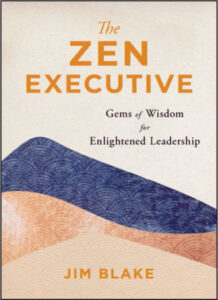It’s often our own self-talk that trips us up, not external factors and circumstances, and that negative inner voice can lead to detrimental effects.
Sadly, many of us remain unaware that we are indeed our own harshest critics. We move through our days with the endless chattering mind—and much of the time it is blathering on about us! It is judging how we look, what we should or should not have said, whether we are in the right job, the right house, the right relationship, and on and on…
This negative self-talk and negative thinking has an impact, a ripple effect. It can cause us to put needless pressure on ourselves, and it can also increase feelings of anxiety, fear, anger, and even depression. For example, how many times have you left a meeting or a social situation where you felt as if you had really blundered and were terribly embarrassed, only to have your friends, coworkers, or others barely remember the situation? This is the power of our inner critic. It has an extraordinary memory and a unique ability to poke at our most vulnerable thoughts and feelings. Something we created in our minds as a mountain turns out to be barely an anthill. Think about the minutes, hours, or sometimes days of energy, emotion, and stress that we put into these scenarios— we can find ourselves spinning from the anxiety and fear created by the negative self-talk— even when everything turns out just fine.
I can remember my own inner dialogue prior to accepting the CEO role at Unity. The organization had been relatively stagnant for several years and many of its offerings were in a downward decline. Many times, in considering my application for the role, my own inner critic had me questioning my ability to make a difference where other leaders had struggled. Had I listened solely to this fear-based mental chatter, I might have missed one of the best opportunities in my career. Instead, I changed my focus to all the wonderful opportunities for innovation and change. This shifted my mental posture from one of trepidation to one of optimism and enthusiasm.
So what can we do better to manage the mental chatter of the inner critic?
A meditation practice can be a great way to help you notice your inner critic and work to manage its chatter so you can get some peace. Once you become aware of it, you have a few different options for responding to it. Start asking yourself whether you would talk to a friend this way in the same situation. If not, what would you say to that friend instead? Whatever you would sa to a friend is what you should be saying to yourself.
You can also stop the spiral of supercritical thinking by naming your negative or critical thoughts and asking whether this is the ultimate truth—or whether it’s possible to see it differently. In almost every case, if we are responding from our highest self and not from emotion, we will be directed to a higher level of thinking that results in liberation from the problem that sent us down the spiral in the first place.
Sometimes our inner critic shows up because it’s trying to protect us from something. Ask your critic what it’s trying to keep you safe even when everything by the negative selftalk— from—whether that’s looking turns out just fine. foolish in front of the boss (so it chimes in to remind you of I can remember my own that silly thing you said in the last meeting in hopes you’ll be less likely to speak up this time) or getting your heart broken (so it belittles or shames you when you’re getting ready for a date that you’d been really excited about the day before). Remind your inner critic that risk is a part of life and there’s no need to panic.
Remember not every problem the inner critic imagines is actually looming large and dangerous. Simply taking a step back and examining the reality of the situation can help identify the actual size of the problem and be completely confident in how we move forward in dealing with it.
Do not forget that perfection is not the goal. We can stop holding ourselves to ridiculously high standards that no human can possibly meet … we must learn to embrace our own imperfections with compassion and understanding and at the same time balance that with the will to do better as we become more aware. Becoming aware of the inner critic and maintaining at least some semblance of control over it will most certainly put us on a path to a more peaceful existence. This will help us achieve a happier and healthier life as we navigate an already complex world. No need to beat ourselves up along the way. May we find the compassion and patience for ourselves that we would feel for a child who is learning and growing, because we are learning and growing.

 Jim Blake is a CEO, lifelong spiritual seeker, and author of The Zen Executive: Gems of Wisdom for Enlightened Leadership. He joined Unity World Headquarters as CEO in 2016, having previously served as chief information officer and vice president of operations from 2006 to 2011. Blake has more than 20 years of executive leadership experience with some of the fastest growing and most innovative companies in North America. Visit iamjimblake.com.
Jim Blake is a CEO, lifelong spiritual seeker, and author of The Zen Executive: Gems of Wisdom for Enlightened Leadership. He joined Unity World Headquarters as CEO in 2016, having previously served as chief information officer and vice president of operations from 2006 to 2011. Blake has more than 20 years of executive leadership experience with some of the fastest growing and most innovative companies in North America. Visit iamjimblake.com.




















